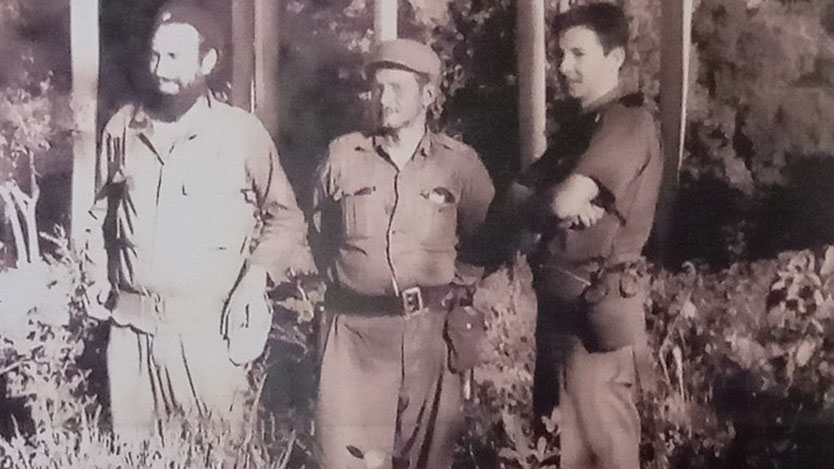Relatives of Lieutenant Enrique Olivera donated to the Colonel Simón Reyes Hernández Provincial Museum, in Ciego de Ávila, the pistol used by this Rebel Army combatant in La Sierra Maestra.

The donation was made by Antonio Mendoza Olivera, grandson of this combatant, who is recognized as one of the most beloved personalities in the province of Ciego de Ávila for his role in agricultural development and his constant respect and humanism in his dealings with the population.
According to Mendoza Olivera, the donation, a 45-caliber Star automatic pistol with its five magazines and cartridge belt, was obtained by his grandfather in La Sierra Maestra through a change of arms with a guerrilla comrade whose name the family could not keep.
At that time, his grandfather, born on March 24, 1905 in the Viviana farmhouse, located in the Media Luna area, present-day Granma province, participated in the battles of Bueycito, Jiguaní and Contramaestre, and in the battle of Guisa, where Fidel promoted him to first lieutenant.
Later, Olivera carried it in the initial years of the Revolution, when in 1960 he was appointed delegate of the National Institute of Agrarian Reform (INRA) in zone C-19, belonging to the current province of Ciego de Ávila.
From that moment on, a very close link with the population of this territory began, by directing the delivery of land to the peasants and the creation of agricultural production cooperatives, companies and agricultural poles, such as Mamonal, in the municipality of Majagua, in 1973.
Olivera was also an anti-Machado fighter, founder of the Communist Party of Cuba and of the local organs of Popular Power, in which he remained a delegate of Circumscription no. 14, located in the Vista Hermosa neighborhood, in the city of Ciego de Ávila, until his death on June 27, 1998.
Nevertheless, along with this work, within the memories that still remain, are the facts related to his conduct before the population, which arose in the heat of his family upbringing and the example shown by his direct boss in La Sierra Maestra, Commander in Chief Fidel Castro Ruz, as he always insisted.
Under these principles, he always picked up people in his vehicle or was capable of delivering his shoes to a worker who did not have shoes, as he did in 1963 in the vicinity of Canaleta neighborhood, according to testimony offered by his driver Mario Otero Paz to the researcher Marcos Dobao Santillana, who has dedicated himself to studying the life of this personality.
Another anecdote that defines him was referred to by Dobao himself and Professor Georgina Sánchez Tejeda in an article published in number 11 of “Los Cuadernos de Historia Avileña”.
It is said in that text that, in 1995, already diagnosed with the disease that would lead to his death, Olivera learned that one of his constituents, Marisabel Sansariq Quesada, had received the notification to vacate the small building of a multi-room edification because he was in the name of his father, recently deceased.
Olivera immediately appeared at the Housing office and explained that the girl had been born in that house and they intended to evict her. The official who attended him asked with an ironic tone:
─Who are you?
─I am Lieutenant Olivera, a combatant of Column No. 1 José Martí and delegate of the district in which she lives. And now, can you tell me who you are?
─I am the engineer who attends this department.
─Well, look, young man, I want to clarify that before the Revolution I stood up against the evictions; therefore, I am not going to allow these crimes to be committed again in this country.
Thanks to the management of the People's Power delegate, Marisabel became the owner of her home.
A year later, on December 7, 1996, Olivera received the condition that declared him the Adoptive Son of the city of Ciego de Ávila. By that date, he already had another qualification given by the population, who called him the People's Lieutenant.
